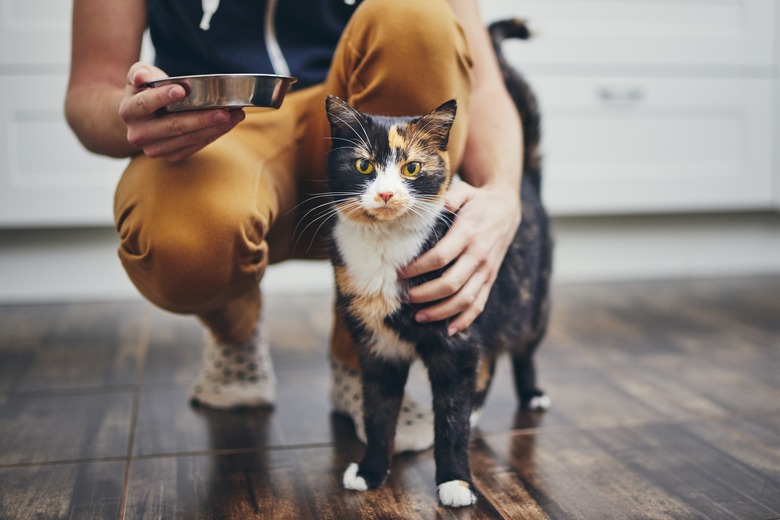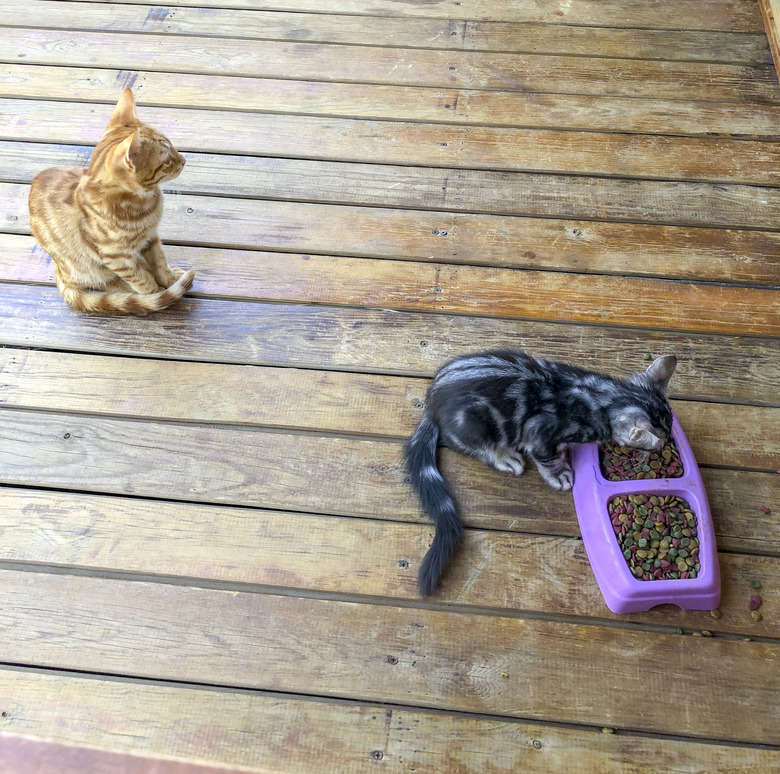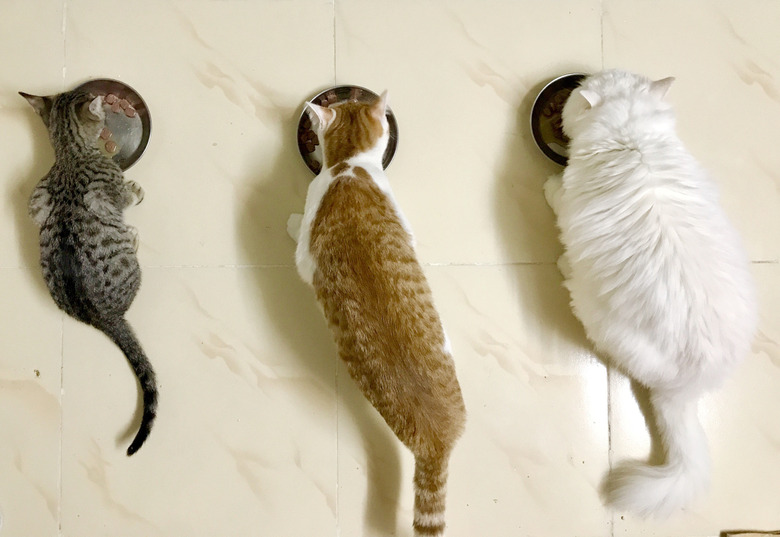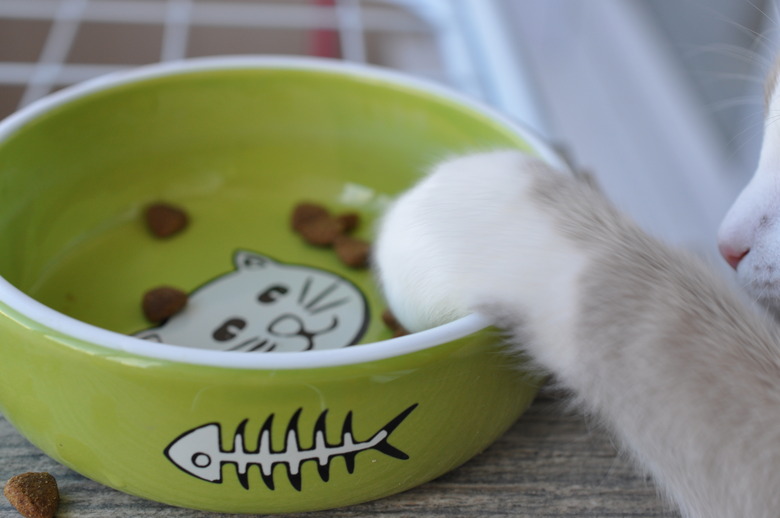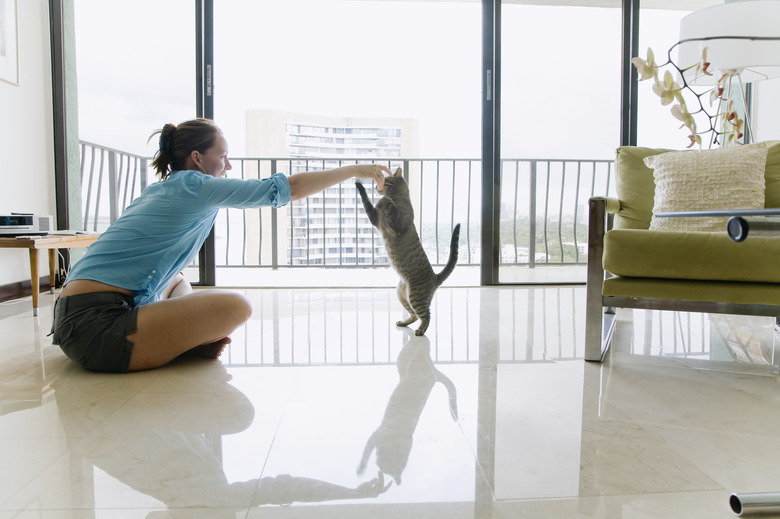Why Does My Cat Eat One Piece Of Food And Walk Away?
Cats can exhibit some strange behavior at times, especially when it comes to using their litter box and with eating habits. When a cat is at the food bowl, they can be distracted at times, and when they are using their litter box, they can feel trapped. Add in a cat that might be nervous or scared, and these are times when a cat can feel vulnerable and scared.
Cat eating habits
Cat eating habits
In the wild, cats have different eating habits than they do when they live a domesticated life. Both wild cats like cougars or lions, and feral neighborhood cats eat around the clock when food is available rather than just when food is in their bowls at feeding time. Cats in the wild seem to prefer to eat several small meals a day, even up to 20 times a day.
When you consider how many hours cats sleep per day — wild cats sleep about 15 hours per day, which is the same amount as a domesticated house cat — that leaves about nine hours for mealtimes, which averages out to two visits to the food source per hour, if that high mark of 20 meals is reached.
For a small cat in the wild, their prey size is small, such as mice or birds. This means that they need to eat more frequently in order to stave off hunger. It's normal for this instinct of more frequent small meals to carry over to the domesticated cat behavior with their kibble. You may see your cat approach the food bowl and eat just a small amount of food and then walk away.
Why is my cat eating just one piece of food?
Why is my cat eating just one piece of food?
Kittens may learn that they have to be competitive with the rest of their litter when it comes to getting enough kibble at feeding time. Cat Health says this learned behavior may stick with a cat through the rest of its life. Kittens who feel competitive about food may grab a small piece of food and run off with it. Removing a single piece of kibble from the food bowl to eat it away from the bowl is a similar behavior to just eating one piece of kibble. This behavior may be caused by instincts from their life in the wild carrying over.
For instance, cats in the wild will commonly grab a piece of food and walk off with it, away from where the other cats are. This can be a means to avoid it being stolen by other cats. Even if your cat isn't facing any pressure from other cats eating their food, this desire to eat away from "the pride" could still be strong.
Taking food out of the bowl
Taking food out of the bowl
A cat who consistently takes food away from the bowl to eat it may not like the placement of their bowl. Perhaps the food area is too close to the water area — cats are "programmed" to not like to eat or drink near areas where they go to the toilet, and they also typically avoid placing their food source near their water. This is thought to be an instinctual desire to avoid contaminating their water with decaying food that introduces bacteria.
Kittens may learn to grab food and take off with it while they are competing for it with the rest of their litter. This behavior can become ingrained even once the rest of the litter is gone.
If a cat's food bowl is too deep, a cat may not like its whiskers rubbing against the edges of the food bowl (or water bowl) every time they approach it. If this is a potential issue, switch to a shallow bowl, which allows them to easily reach all the food surfaces without having to stick their faces in too deeply.
Nervous cat eating
Nervous cat eating
If a cat is experiencing stress in the home, such as a dog who chases it when it comes out, the cat may feel anxiety about approaching its food bowl. If you're feeding dry food, it could be easier for the cat to run up and take a single piece and then run off. In this case, moving the food bowl to an area where the cat can feel safer may help the problem. Also, providing canned food that is not as easy to run off with may also help.
Signs of an anxious cat include compulsive behaviors such as chewing on things that aren't food or repetitive behaviors such as over-grooming or excessive scratching on furniture. Other signs and symptoms of cat anxiety can include a change in mood and hiding. Eating only one piece of food and then walking away could be a sign of this type of problem.
In conclusion
In conclusion
A cat who eats only one piece of food and then walks away could be dealing with a few issues. They may not like the placement of their food bowl, so they are trying to take it one piece at a time to a different area. Cats are also instinctually programmed to eat small meals throughout the day, if food is available, as opposed to just eating twice a day as house cats are often fed.
Try providing smaller, portion controlled amounts of either dry food or canned food throughout the day so they have more mealtimes but overall eat the same amount. A shallow bowl can help cats who don't like having their whiskers rub against the food bowl.
References
- Royal Canin: Feeding Behavior In Cats
- Oakland Veterinary Referral Services: An Age-Old Mystery – Why Do Cats Sleep So Much?
- Cat Health: Why Do Some Cats Carry Food Out Of Their Bowls to Eat It?
- North Hertfordshire Cats Protection: Is Your Cat Drinking Enough Water?
- Purina: How to Spot and Treat Cat Anxiety
